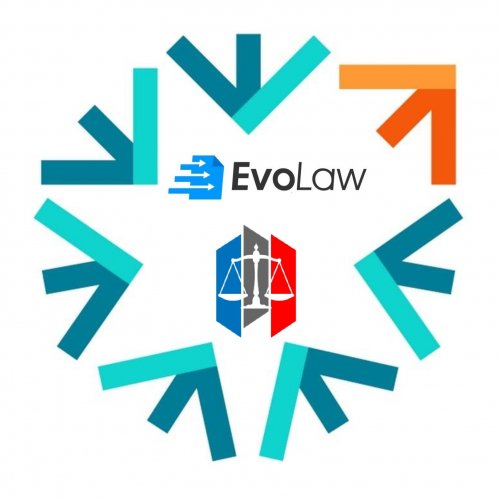Best Creditor Lawyers in San Salvador
Share your needs with us, get contacted by law firms.
Free. Takes 2 min.
List of the best lawyers in San Salvador, El Salvador
About Creditor Law in San Salvador, El Salvador
Creditor law in San Salvador, El Salvador refers to the legal framework that governs the rights and responsibilities of creditors and debtors in financial transactions. It involves various aspects such as lending, borrowing, repayment, and debt collection.
Why You May Need a Lawyer
There are several situations where seeking the assistance of a lawyer specializing in creditor law in San Salvador, El Salvador can be beneficial:
- If you are a creditor and need assistance with drafting loan agreements or reviewing contracts to protect your interests.
- If you are a debtor who is facing difficulties in repaying debt and need guidance on negotiating with creditors or exploring debt relief options.
- If you are involved in a debt collection dispute and require legal representation to defend your rights.
Local Laws Overview
Here are some key aspects of local laws that are particularly relevant to creditor law in San Salvador, El Salvador:
- Commercial Code: The Commercial Code of El Salvador governs various aspects of creditor law, including contracts, negotiable instruments, and commercial transactions.
- Bankruptcy Law: The Bankruptcy Law establishes procedures for debtors and creditors when a debtor is unable to repay their debts. It covers bankruptcy, reorganization, and liquidation processes.
- Consumer Protection Laws: Consumer protection laws in El Salvador offer safeguards to borrowers by regulating interest rates, fees, penalties, and unfair debt collection practices.
Frequently Asked Questions
1. What are the consequences of defaulting on a loan in San Salvador, El Salvador?
In San Salvador, defaulting on a loan can lead to legal actions such as debt collection lawsuits, asset seizure, foreclosure, or bankruptcy proceedings. It is essential to understand your rights and obligations as a borrower to mitigate potential consequences.
2. Can a creditor garnish wages of a debtor in San Salvador, El Salvador?
Yes, under certain circumstances and with a court order, a creditor can garnish a debtor's wages in San Salvador. However, specific limitations and exemptions exist to protect a debtor's basic needs.
3. What debt relief options are available to debtors in San Salvador, El Salvador?
Debtors in San Salvador may explore debt relief options such as debt restructuring, negotiation, or filing for bankruptcy. It is advisable to consult with a lawyer specializing in creditor law to understand the best course of action based on your individual circumstances.
4. How long does the debt collection process usually take in San Salvador, El Salvador?
The duration of the debt collection process can vary depending on various factors, including the complexity of the case, the debtor's cooperation, and the court's schedule. It is best to consult with a lawyer to get an estimate tailored to your specific situation.
5. What are the limitations for interest rates in loan agreements in San Salvador, El Salvador?
Loan agreements in San Salvador are subject to limitations on interest rates imposed by consumer protection laws. These limitations aim to prevent excessive interest charges and protect borrowers from predatory lending practices. It is crucial to review the applicable laws and seek legal advice if you suspect unfair interest rates in a loan agreement.
Additional Resources
If you need legal advice or more information on creditor law in San Salvador, El Salvador, consider reaching out to the following resources:
- Ministry of Justice and Public Security - El Salvador
- National Association of Attorneys in El Salvador - Creditor Law Section
- El Salvador Bar Association - Creditor Law Committee
Next Steps
If you require legal assistance in creditor law in San Salvador, El Salvador, it is advisable to take the following steps:
- Compile all relevant documents such as loan agreements, contract terms, and communication with creditors.
- Research and reach out to reputable lawyers specializing in creditor law.
- Schedule a consultation to discuss your specific situation and seek legal advice.
- Based on the consultation, follow the recommendations provided by the lawyer to protect your rights and resolve the creditor-related matter.
Lawzana helps you find the best lawyers and law firms in San Salvador through a curated and pre-screened list of qualified legal professionals. Our platform offers rankings and detailed profiles of attorneys and law firms, allowing you to compare based on practice areas, including Creditor, experience, and client feedback.
Each profile includes a description of the firm's areas of practice, client reviews, team members and partners, year of establishment, spoken languages, office locations, contact information, social media presence, and any published articles or resources. Most firms on our platform speak English and are experienced in both local and international legal matters.
Get a quote from top-rated law firms in San Salvador, El Salvador — quickly, securely, and without unnecessary hassle.
Disclaimer:
The information provided on this page is for general informational purposes only and does not constitute legal advice. While we strive to ensure the accuracy and relevance of the content, legal information may change over time, and interpretations of the law can vary. You should always consult with a qualified legal professional for advice specific to your situation.
We disclaim all liability for actions taken or not taken based on the content of this page. If you believe any information is incorrect or outdated, please contact us, and we will review and update it where appropriate.







